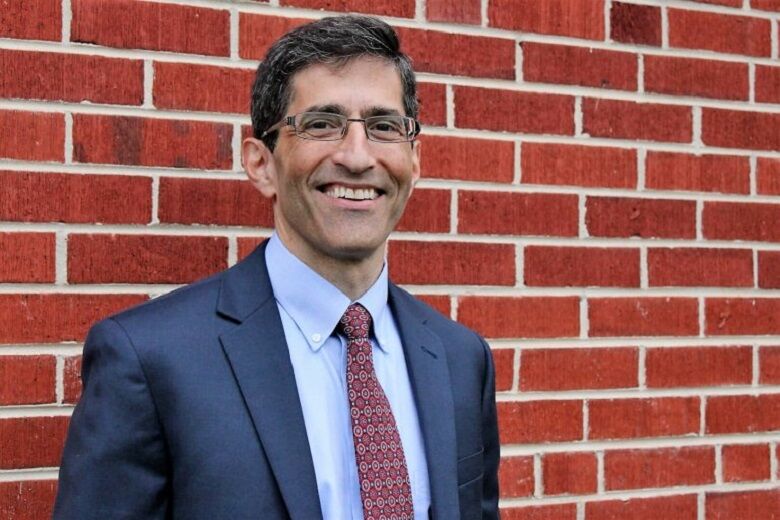This article was republished with permission from WTOP’s news partners at Maryland Matters. Sign up for Maryland Matters’ free email subscription today.

This content was republished with permission from WTOP’s news partners at Maryland Matters. Sign up for Maryland Matters’ free email subscription today.
Gubernatorial candidate and nonprofit executive Jon Baron, embarking on his first run for public office, says Maryland’s next top executive should focus on evidence-based policies as the state recovers from the COVID-19 pandemic.
Baron founded and ran the Coalition for Evidence-Based Policy, a nonprofit group that “seeks to increase government effectiveness through the use of rigorous evidence about what works.” He said that he wants to bring that evidence-based approach to state government and institute policies that he has seen reduce poverty and boost educational outcomes in other states.
“My focus is not on expense or expanding the size of state government,” Baron said. “I’m not focused on bigger government or smaller government. My main focus is on smart government. The money we are spending should be spent on programs and policies that actually deliver results.”
Baron’s key policy proposals center around public-private partnerships: He said the state should work with businesses to help people filing for unemployment find job postings, and also offer free resume help and other reemployment assistance. He said people who took part in a similar program in Nevada earned more than people who didn’t participate in the program.
“This is something that is straightforward, it’s low cost, and it’s easy to do,” Baron said. “Maryland does not do it.”
He also said the state could boost employment and help low-income Marylanders by offering earnings supplements to long-term unemployed workers when they find a full-time job.
Baron wants the state to partner with Maryland businesses and fund job training and provide paid internships for young adults. He added that he thinks the state should study whether it needs to redirect existing funding for job training and workforce development.
“Under my plan, the state would pay for the training, the businesses pay for the internships, the economy gets skilled workers, everybody benefits,” Baron said.
On education, on top of tutoring efforts outlined in the Blueprint for Maryland’s Future, Baron wants to institute a statewide tutor corps that pairs early elementary school students with community members, who would receive a stipend for tutoring.
“The critical attention that I would bring in implementation is to make sure that those additional funds are focused on programs and policies that don’t just sound like good ideas, aren’t just well-meaning, but have been tested in the real world and proven to work,” Baron said.
Baron hopes to pitch his policy background, alongside his work on Capitol Hill, to voters as part of his campaign. He worked for the Department of Defense during the Clinton administration, and served on boards and commissions under President George W. Bush and President Barack Obama.
In addition to his work with the Coalition for Evidence-Based Policy, Baron also worked as a vice president at the policy-based philanthropic organization, founded by billionaires John and Laura Arnold, that is now called Arnold Ventures.
As to how he would implement his policy goals, Baron indicated that he would work with the Maryland General Assembly, in addition to using executive orders. He said that input from community members and local leaders across the state would likely shape his policy proposals.
Baron said he’s gotten a “strong response” on those policy proposals from voters he has met on the campaign trail.
“These are not just ideas,” he said. “They’ve been tested in the real world and shown to make a big difference in education and other areas.”
Baron said he wants Maryland to have an “activist government” that focuses on combatting racial inequities and helping low-income Marylanders — and argued that his focus on evidence-based policies will help him stand out in the crowded Democratic gubernatorial field.
“To achieve those goals, it’s not enough to simply roll out yet another unproven plan and program, because however well intentioned, many programs just don’t work, as we’ve seen too often when they’re actually measured,” Baron said.
He pledged to accept only contributions from individuals and said he would not take money from “corporations or special interests.” Baron said he supports the state’s public campaign financing system, but hasn’t yet decided whether he’ll participate in it.
In addition to Baron, the Democratic gubernatorial candidates are former Prince George’s County Executive Rushern L. Baker III, Comptroller Peter V.R. Franchot, former state Attorney General Douglas F. Gansler, former Obama administration official Ashwani K. Jain, former U.S. Secretary of Education John B. King Jr., author and former anti-poverty organization CEO Wes Moore, former U.S. Secretary of Labor Tom Perez and Baltimore tech entrepreneur Michael Rosenbaum.
Maryland’s gubernatorial primary elections are scheduled for June 28, 2022.







